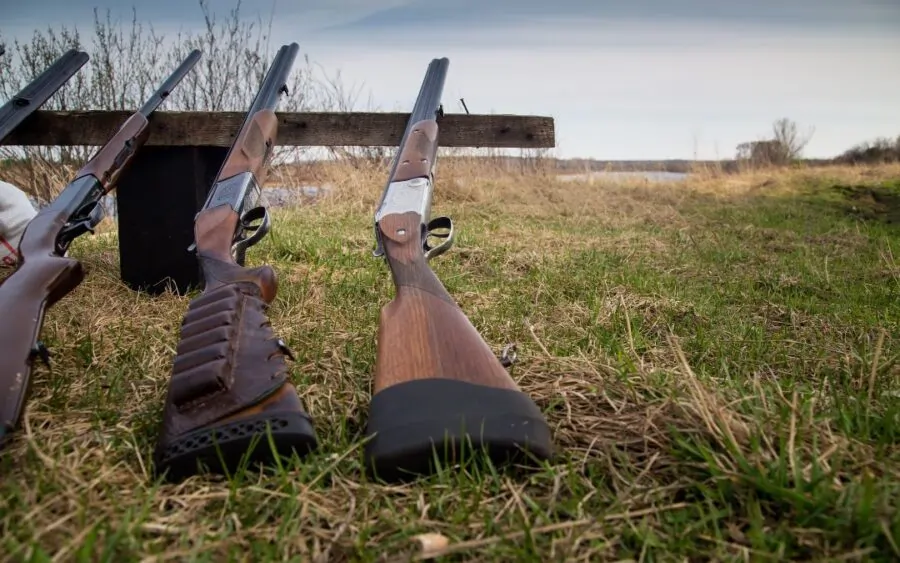A Gun Trust is a trust specifically created to hold firearms and work in unison with your Will or Revocable Living Trust. It’s not made to replace your Estate Plan, but enhance it and also hold Title II NFA guns. This is protecting you from violating federal law. Using a gun trust in you a estate plan is something you can benefit from.
These trusts are usually referred to as a self-settled living trust because the gun owner establishes the Gun Trust. It is to benefit themselves during their life and also sets-forth beneficiaries for when they die.
The Basic Characteristics of a Gun Trust
- The original gun owner is the ‘Settlor’ or ‘Creator’ of the Trust.
- The owner generally serves as the Trustee of the Trust controlling how it’s managed.
- It’s revocable, thus the gun owner/Settlor can change the Trust any time they please.
- The Trust name can be unique or anonymous providing some degree of privacy.
- The Trust Agreement sets forth the beneficiaries of the guns now and once the Settlor passes.
- Commonly designed to also take ownership of Title II NFA firearms.
Once established, a Gun Trust becomes a legal entity in and of itself. However, the type of trust described above isn’t required to have a bank account OR file a tax return. It’s a private document that you can update when and if necessary without exorbitant legal fees. Essentially, maintaining the Gun Trust for many years with only minor amendments from time to time.
How does a Gun Trust Work?
Upon creation of the Gun Trust, the gun owner gives up or transfers ownership of his or her guns to the Trust. However, the owner can still use the guns. They get to call the shots of the Trust as the Trustee (no pun intended). In sum, the Gun Trust becomes the bona fide owner of the firearms and those additionally acquired by the owner in the future.
This ‘transfer’ process can seem confusing because some guns have licensed ownership, while others do not. For an unlicensed gun (for example a standard shotgun), the Trust will list the guns transferred into the trust by ‘reference’. This is typically accomplished on that of an Exhibit.
Guns that are required to have a Federal or State permit or license will need to be transferred to the name of the trust. This process can be accomplished through the help of a gun shop or dealer (I’m talking about a licensed gun dealer btw).
EXAMPLE: You own (3) three shotguns and want to make sure that each one goes to a specific family member upon your passing. You can effectively ‘transfer’ the guns into the Gun Trust and list them on an Exhibit, even though there is no official paper filed with the government showing ownership.
It’s best when transferring guns into the Gun Trust that the gun owner lists. Include the make, model, and serial number with as much specificity as possible. This is to make sure the right gun it held by and governed by the Gun Trust.
In the future, the Settlor/Trustee will purchase new firearms in the name of the Gun Trust directly.
The Settlor/Trustee can also buy, sell, and remove guns from the Gun Trust, or add new guns to the Trust at any time, providing maximum flexibility to the original gun owner.
Who IS Going to Inherit the Gun or Guns?
Gun owners have deep feelings about what their guns mean to them. Oftentimes, owners inherit guns from their father or mother. They might carry with them intense sentimental value. A gun is truly a family heirloom in millions of households across the country.
With that said, it’s surprising how many gun owners don’t establish a ‘plan’ for who will inherit their guns. A Gun Trust solves that problem and more. Remember if you don’t have a plan for your assets when you pass away, the government has a plan for you. This plan is estate and probate law.
EXAMPLE: You plan to give your special rifle to your youngest son and tell him this specifically on your last hunting trip. You die unexpectedly, as it typically happens, before the next hunting season, but take comfort up in heaven knowing you will be watching from the pearly gates as he takes that gun out for the first time by himself. Oops! You didn’t have a Will, Estate Plan, or Gun Trust to properly indicate this. Guess what? Your 2nd wife, who you love dearly, inherits all of your assets. She now gets to decide who gets your rifle. A Gun Trust solves this problem and more!
The Trust Agreement of the Gun Trust is the ‘bible’ of how the Trust operates. It will dictate the following:
- Who can use the guns while the Settlor is alive (the current beneficiaries)?
- Who’s in charge (the Trustee)?
- Who receives which guns upon the death of the Settlor (the residual beneficiaries)?
- When and how can you modify the Trust?
Why Not Just Use my Revocable Living Trust for my Guns?
Millions of Americans use the standard Revocable Living Trust for handling their estate upon their passing. They generally do a fantastic job…if you fund them and keep them up to date. See “Do I Need A Revocable Living Trust- What You Need to Know”.
The problem is three-fold:
- Many people procrastinate their Estate Plan. Even though their guns are precious to them. This is because the whole project seems overwhelming. They hope a note in a drawer or a sticker on a gun as to who gets it will suffice- it does not.
- Those that have a Revocable Living Trust didn’t include provisions for their guns and now have to consider going back to the ‘drawing board’ and working with the attorney again and consider it expensive and a hassle.
- A Revocable Living Trust is not built for, nor can it handle, Title II guns under the National Firearms Act.
Bottom line, a Gun Trust is a great way to take care of the guns in an owner’s life simply, affordably, and effectively without having to tackle their overall estate plan, or amending their old one, if they don’t want to.
National Firearms Act (NFA) Title II guns
One of the primary benefits of a properly drafted Gun Trust is to help gun owners not breach the federal firearm laws. Suppressors, machine guns, assault rifles, and short-barreled rifles are just a few of the firearms or accessories that fall under the prevue of NFA Title II.
A Gun Trust tackles the most difficult provision of the NFA and that is: ‘possession’. If an unauthorized individual is found in possession of a Title II firearm, even an unintentional violation may result in the firearm being seized, fines of up to $10,000, and a prison term of up to 10 years.
The Gun Trust provides for ‘beneficiaries’ and ‘co-trustees’ that may be named in the Trust. It creates a sort of ‘shared ownership’ of the firearms and avoid breaching the NFA laws.
Does a Gun Trust Provide Asset Protection?
A Gun Trust is typically not going to provide any type of Asset Protection. As I stated above, most Gun Trusts are ‘revocable’ and for any degree of asset protection. Then you would need to consider an irrevocable trust.
This means that with a standard Gun Trust, if you’re in a car accident and due to your texting and driving they will find you liable. Then charged with a civil judgment, a creditor could get ‘into’ your Gun Trust. They could take away your guns to satisfy the judgment. To learn more about asset protection that works see “How and When to use a Domestic Asset Protection Trust”.
Although a Gun Trust may not have any asset protection, its primary purpose is to enhance your estate planning. It will provide a more effective way to own Title II NFA guns.
Bottom line, anyone that owns guns can benefit from a Gun Trust specifying who will inherit their guns upon their passing. Using a gun trust in your estate plan can ensure the guns end up in the proper hands.







